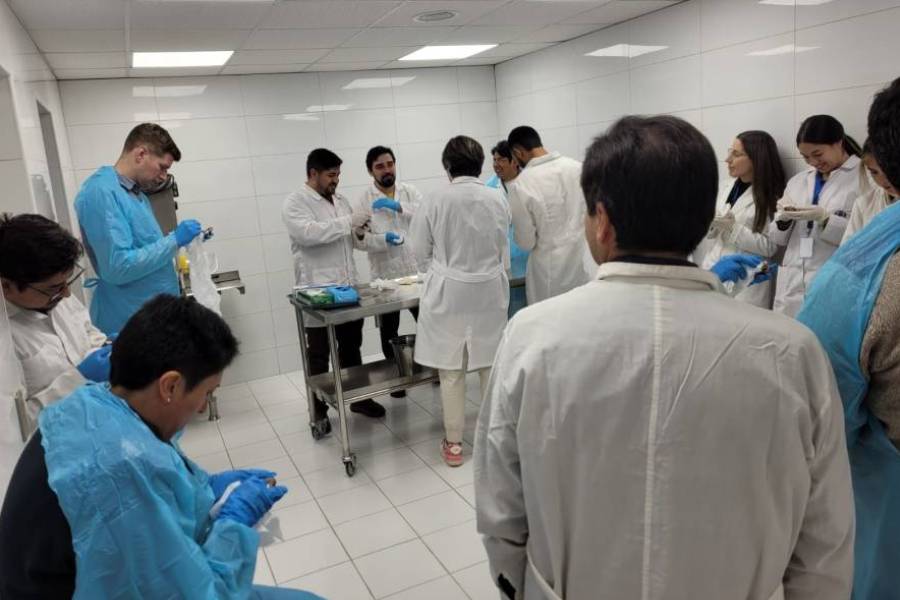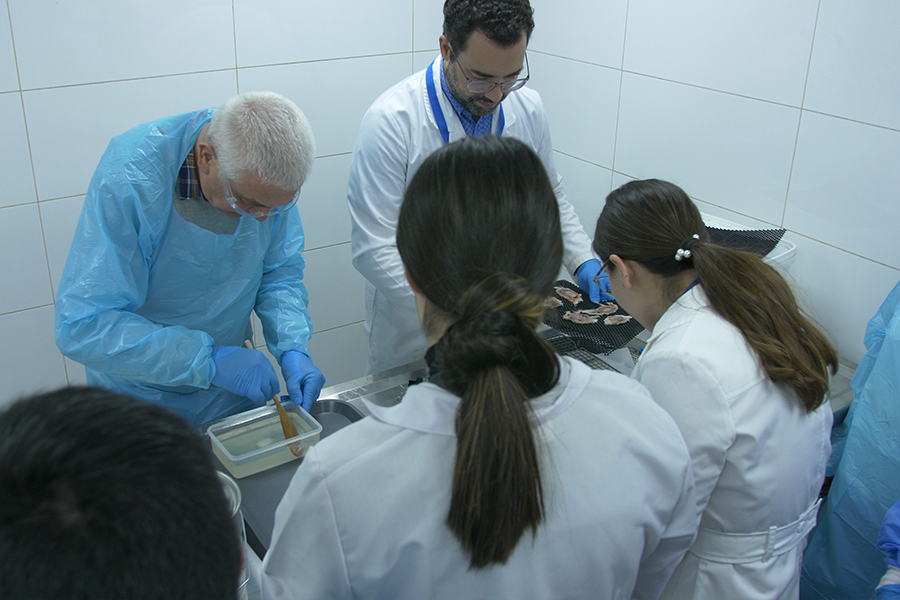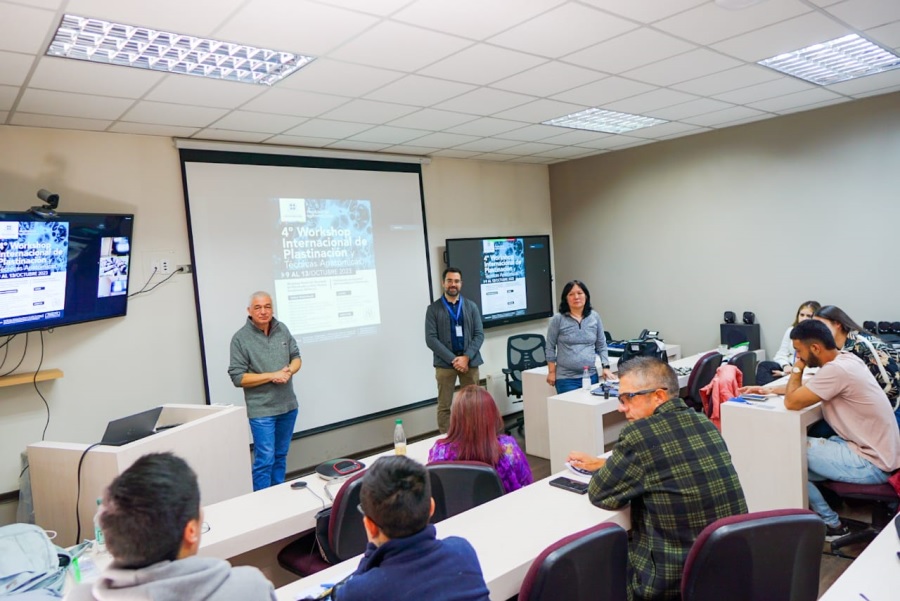|
The activity took place at Universidad de La Frontera, with the participation of outstanding speakers and experts in the field of plastination. |
For one week, eighteen academics, health experts, professionals and graduate students from nine countries participated in the 4th International Workshop on Plastination and Anatomical Techniques of Universidad de La Frontera (UFRO), organised by the Laboratory for Plastination and Anatomical Techniques of the Faculty of Dentistry and the Centre of Excellence in Morphological and Surgical Studies (CEMyQ). The workshop had a theoretical and a practical part, in which outstanding speakers in this field of knowledge, such as Dr. Telma Masuko from Universidad Federal de Bahía (Brazil), and Dr. Volker Schill, from Biodur, von Hagens Plastination GmbH (Germany), shared their knowledge, as well as Dr. Carlos Veuthey and the director of the Laboratory for Plastination and Anatomical Techniques, vice president of the International Society for Plastination, and director of the workshop, Dr. Nicolás Ottone from Universidad de La Frontera (Chile). In addition, the professor Dr. Carlos Baptista from the University of Toledo, Ohio (USA), participated online, as well as the president of the International Society for Plastination, Dr. Dmitry Starchik. According to Dr. Ottone, “the plastination technique makes it possible to preserve morphological, anatomical, human and animal structures in a biosecure way and for an indefinite period of time, for teaching, research and outreach purposes. We addressed this technique in the workshop, with theoretical classes in the morning and practical classes in the laboratory in the afternoon, for one week. The students developed all plastination techniques with silicone, epoxy and polyester resins, and micro-plastination to obtain ultra-thin slices”. The first version of this workshop took place in 2017, after the implementation of the Laboratory for Plastination and Anatomical Techniques at UFRO. Since then, they organized four hands-on workshops, a certified course, and the 20th International Conference on Plastination. “This shows that our work is internationally recognised, not only in terms of preparing plastinated material for teaching purposes but also regarding our research, with more than twenty WoS publications in the field of plastination so far. Currently, I am also the vice president of the International Society for Plastination, where I was the secretary before. That also gives UFRO great visibility at the international level,” Dr. Ottone pointed out. PARTICIPANTS The participants came from Canada, the United States, Mexico, El Salvador, Colombia, Ecuador, Bolivia, Uruguay, and Chile this year. The Director of the Pathologists’ Assistant Program in the School of Health Professions at the University of Texas Medical Branch (UTMB), USA, Dr. Marcela Lizarraga, emphasised the quality of the workshop and the importance of this technique for teaching and research. “Plastination lasts forever. We still do cadaver dissection, but that lasts only a semester or a year. After that, we have to return the bodies because they are cremated. In turn, with this plastination technique, we can have specimens that last forever. In addition, the students can handle them without special precautions, because the technique does not require any toxic or chemical substances,” she explained. She was also pleased with the format of the workshop. “It is really good. I have the chance to ask questions about things I do not know. We are just starting with our laboratory, so I have many questions. Besides, here are experts for each phase of the process, so I can learn everything I need to get started,” she commented. It is worth mentioning that this International Workshop, organised by Universidad de La Frontera, is the only training programme for plastination and anatomical techniques in South America. Written by: Soledad Millapan Sandoval |







